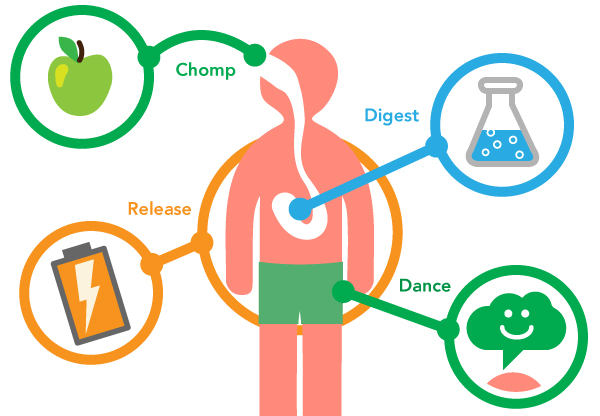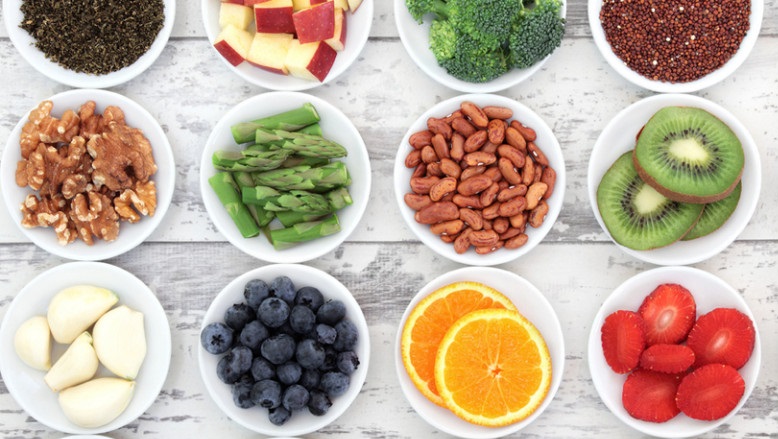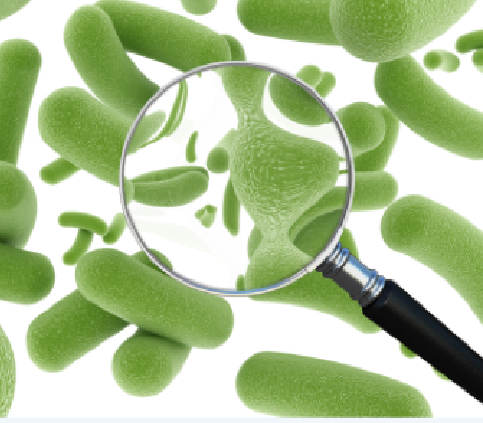Ever notice how your skin tends to act up when your eating habits aren’t the best? That’s no coincidence. Your…


Ever notice how your skin tends to act up when your eating habits aren’t the best? That’s no coincidence. Your…

Ever wonder why your skin still acts up despite a solid skincare routine? You’re drinking water, moisturizing daily, and maybe…

Old Man Winter may come creeping in gradually with fluctuating temperatures, or he could burst in suddenly with a snowy…

Summer is nearly here and most families will be headed out doors to begin all sorts of outdoor activities. Summer can be one of the roughest times of the year on the skin and steps should be taken to protect its health. Exposure to the sun can lead to skin damage as well as skin cancer but there are also other problems that can arise. No matter what type of outdoor activity you are engaged in, even lying by the pool, you are likely to sweat more. This can mean that the skin has more dirt, oils and even environmental chemicals will be trapped in your pores. This is certainly the time of year when we need to be much more conscious of our skin health and take measures to protect it from damage. Here are a few tips to help maintain skin health this summer.

As people age, the body goes through a number of changes. For example, cells turnover at a diminished rate, as we grow older. Every 28 days, the skin naturally sheds dead cells and replaces them with younger cells. But as the body matures, this renewal process slows down, and new cells begin to regenerate less often. These circumstances allow old, dead skin to remain on the skin for a longer period of time. Once individuals reach the age of 40, the body’s collagen production begins to dwindle, which engenders lines, dullness, and wrinkles. Moreover, decades of exposure to taxing environmental factors like pollution, harsh weather conditions, and prolonged sun exposure is detrimental to one’s skin. While delaying the aging process is an impossible feat, small lifestyle adjustments can make a big difference when it comes to preserving and improving the look and feel of skin. Dermatologists provide 10 easy ways to erase signs of aging and help forge radiant, healthy, youthful skin.

Most nutritionists agree that consuming processed meats correlate to potentially developing diseases such as high blood pressure and heart disease. But scientific research now suggests that enjoying too many savory steaks or juicy lamb chops can actually put you at higher risk for developing colon cancer. The reasoning behind this link relates to meat as a carcinogenic; primarily red meats and processed meats. But before you take a bite of that hamburger or cut into that steak, you should understand how and why eating certain meats can potentially put you at a higher risk for developing colon cancer.
 Metabolism. We’ve all heard of it, and we’ve likely all talked about it. We may even know if ours is slow or fast. But how much do we really know about metabolism? If you were asked to explain it, could you? Does it even matter if you know anything or nothing at all about your metabolism? Actually, knowing how your metabolism works can help you to make better choices in your diet and exercise routine. It can even help you to decide what kinds of exercise and foods will work best for your particular metabolism. The simple answer to the above question is: metabolism is the rate at which your body can process the foods you consume. Of course, there’s a lot more to it, and the more you know, the better off you, your body, and your fitness results will be. Here’s some info from gastroenterologists in Queens on the subject of metabolism. A top GI doc near you can help you to understand how metabolism works and how to use this to achieve results you desire.
Metabolism. We’ve all heard of it, and we’ve likely all talked about it. We may even know if ours is slow or fast. But how much do we really know about metabolism? If you were asked to explain it, could you? Does it even matter if you know anything or nothing at all about your metabolism? Actually, knowing how your metabolism works can help you to make better choices in your diet and exercise routine. It can even help you to decide what kinds of exercise and foods will work best for your particular metabolism. The simple answer to the above question is: metabolism is the rate at which your body can process the foods you consume. Of course, there’s a lot more to it, and the more you know, the better off you, your body, and your fitness results will be. Here’s some info from gastroenterologists in Queens on the subject of metabolism. A top GI doc near you can help you to understand how metabolism works and how to use this to achieve results you desire.
 Food is fuel. So perhaps a better term for these foods is super fuel—because that’s what your body receives when you eat them—fuel that supercharges you. Think about this … you wouldn’t put just any old junk into your car’s gas tank, right? Of course not! You put gasoline in your gas tank—because, well, that’s all it will take without harming your car. Yet many of us think nothing about putting junk inside our bodies. But isn’t your body so much more important than your car? Now, think of it this way … eating super foods is like not only putting gasoline into your car’s gas tank rather than junk; it’s like putting premium ultra-supreme super-duper unleaded gasoline into it! And with each super food you eat, your body gets that much stronger and healthier. If you’re searching for daily health tips (and you must be—otherwise you wouldn’t be reading this article!), you’ve come to the right place. Following is important information about super foods—what super foods are, their history, how they got to be called ‘super foods,’ as well as which foods have the power to keep your body functioning properly.
Food is fuel. So perhaps a better term for these foods is super fuel—because that’s what your body receives when you eat them—fuel that supercharges you. Think about this … you wouldn’t put just any old junk into your car’s gas tank, right? Of course not! You put gasoline in your gas tank—because, well, that’s all it will take without harming your car. Yet many of us think nothing about putting junk inside our bodies. But isn’t your body so much more important than your car? Now, think of it this way … eating super foods is like not only putting gasoline into your car’s gas tank rather than junk; it’s like putting premium ultra-supreme super-duper unleaded gasoline into it! And with each super food you eat, your body gets that much stronger and healthier. If you’re searching for daily health tips (and you must be—otherwise you wouldn’t be reading this article!), you’ve come to the right place. Following is important information about super foods—what super foods are, their history, how they got to be called ‘super foods,’ as well as which foods have the power to keep your body functioning properly.
 The most succinct definition of the ‘Microbiome’ is the entirety of microorganisms and their accompanying genetic material that we have in our bodies. Wait–is there that much microorganism activity going on in our bodies that there’s a whole separate word for it–not to mention world encompassing it? Absolutely. In fact, in the breakdown of cells making up the human body, you might say we humans are about 90 percent inhuman! A better explanation of that statement would be that the human body includes literally trillions of microorganisms and their combined genetic matter. And therein lies the Microbiome. Following is more detailed information about the fascinating world of the Microbiome that will help you better understand the Microbiome and what it has to do with your health.
The most succinct definition of the ‘Microbiome’ is the entirety of microorganisms and their accompanying genetic material that we have in our bodies. Wait–is there that much microorganism activity going on in our bodies that there’s a whole separate word for it–not to mention world encompassing it? Absolutely. In fact, in the breakdown of cells making up the human body, you might say we humans are about 90 percent inhuman! A better explanation of that statement would be that the human body includes literally trillions of microorganisms and their combined genetic matter. And therein lies the Microbiome. Following is more detailed information about the fascinating world of the Microbiome that will help you better understand the Microbiome and what it has to do with your health.

Most Americans get very little nutrition in their daily diets. According to the President’s Council on Fitness, the typical American diet exceeds the recommended intake limits in four categories, including fats and added sugars, sodium, saturated fats, and refined grains. It also reports that most Americans eat less than the recommended amounts of fruits and vegetables, and 90% of all Americans eat more sodium than what is recommended for a healthy diet. However, perhaps what is most shocking is that the average calorie consumption has increased by 600 calories per day in the past four decades! If one of your goals this year is to eat a healthier diet, here are some tips for living a healthy life that will help you make better decisions every day from here on out so that you can look forward to a long and healthy future.